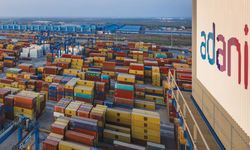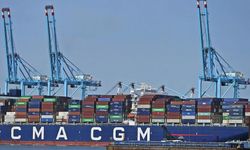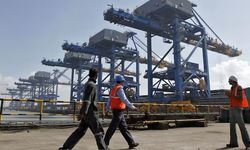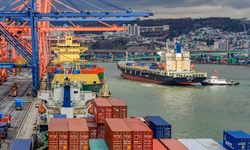This innovative technology provides comprehensive emissions analysis tailored explicitly for ports, offering a new level of reporting capability to support environmental sustainability.
The Port Emissions Report delivers a detailed analysis of emissions from various transport modes, including vessels, harbor vessels, cargo handling equipment, railways and trucking. It tracks ship movements, vessel types and the associated emissions of pollutants such as CO2, CO, CH4, SO2, NOx, N2O, PM10, and CO2-equivalent greenhouse gases, enabling ports to identify critical areas for improvement.
This thorough analysis is essential for developing effective decarbonisation strategies and facilitates data-driven decision-making by offering actionable insights to guide corrective actions
Available independently of the EmissionInsider Carbon Insight Suite, the Port Emissions Report is an ideal solution for ports seeking focused, standalone reporting capabilities.
The report also ensures compliance with local and international environmental standards, helping ports avoid penalties such as administrative sanctions, financial fines, or public censure. By providing high-quality, actionable data, the Port Emissions Report empowers ports to strengthen their sustainability efforts and achieve decarbonisation goals.
Belfast Harbor and the Port of Houston are already leveraging its capabilities. As Belfast Harbor notes, "The In-Port Vessel Emissions Report has been instrumental in helping us accurately track and manage our emissions, ensuring compliance with stringent environmental regulations and advancing our sustainability initiatives."
Ports are increasingly adopting the Port Emissions Report to comply with evolving environmental regulations such as the Corporate Sustainability Reporting Directive (CSRD) in the EU, the Streamlined Energy and Carbon Reporting (SECR) framework in the UK and Environmental Protection Agency (EPA) regulations in the USA. The tool helps ports meet increasing demands from numerous stakeholders—including governments, NGOs, shipping lines, and the public, to reduce their environmental impact.
By positioning themselves as leaders in sustainability and innovation within the maritime industry, ports can attract environmentally-conscious customers and partners while distinguishing themselves from competitors. Furthermore, the Port Emissions Report enables ports to contribute to global efforts to combat climate change by reducing greenhouse gas emissions and promoting greener practices. This then opens up access to financial benefits, including grants, subsidies and tax incentives for implementing sustainable technologies.
"PortXchange is dedicated to advancing environmental sustainability through innovative solutions that support ports in their pursuit of greater ecological responsibility," said Abhishek Nair, Director of Business Development at PortXchange. "The Port Emissions Report exemplifies our commitment to providing high-quality, actionable data that empowers ports to enhance their sustainability strategies."
PortXchange's commitment to socially responsible and ethical business practices is evident in the development of the Port Emissions Report, designed to meet the highest standards of environmental stewardship. Sjoerd de Jager, CEO of PortXchange, stated, "We are dedicated to helping ports not only meet but accelerate their journey to net zero. Historically, ports have operated in isolation, with fragmented data collection hindering progress.
This launch marks a pivotal step towards creating a unified global standard for port emissions reporting, accessible to all ports, regardless of size or operational complexity. We need a unified standard similar to those already established in other industries. We aim to boost transparency and promote greater collaboration across the industry, which is essential for making significant advances in decarbonisation efforts."






